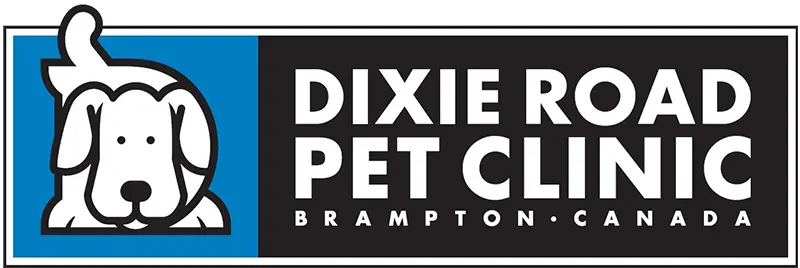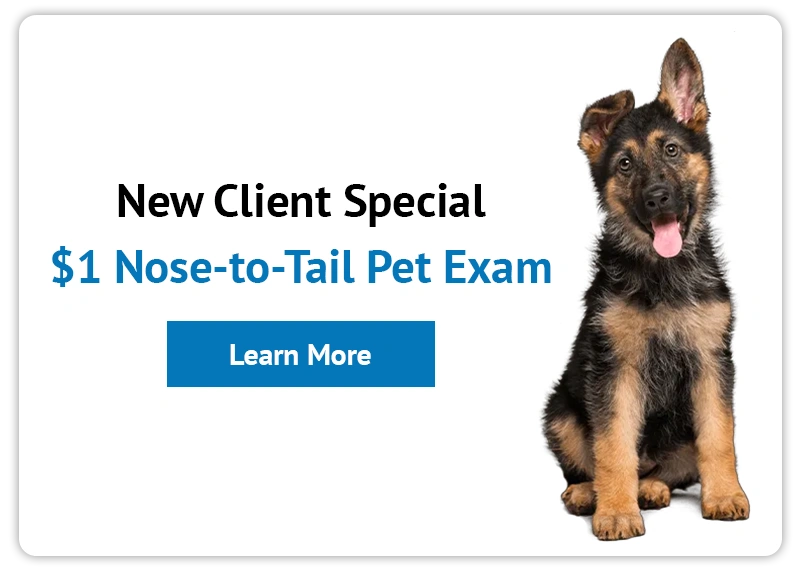Toxins for Dogs That You Already Have in Your Home

Even the most safety-conscious dog owner most likely has a few potential toxins in their home. Fortunately, it’s easy to keep your canine companion safe once you know what to be on the lookout for! Below, your Brampton, ON veterinarian tells you about five dog toxins you probably have in your home right now.
Toxic Foods
Plenty of human foods can harm your dog. The list includes chocolate, candy, gum, onions, garlic, chives, leeks, scallions, shallots, avocado, salty items like chips and pretzels, fatty foods, certain types of nuts, and much more. Leaving these foods out on your kitchen countertops or table is a recipe for disaster—place them inside closed cabinets, containers, or the refrigerator to keep Fido safe.
Human Medication
Were you aware that a variety of human medicines can harm your dog? Aspirin, cough syrup, antidepressants, over-the-counter drugs and prescription pills… all sorts of medicine isn’t safe for your pooch. It’s important to keep your medicines safely locked away in a closed cabinet where Fido can’t reach, and it’s safest to store your dog’s own medicines in a completely separate area so that nothing gets mixed up.
Poisonous Plant Life
All sorts of plants and flowers can harm a dog when ingested. Dieffenbachia, tulips, lilies, elephant ear, oleander, rhododendron (also known as azalea), ivy, daffodils, the sago palm, various types of aloe plants, and much more can cause irritation or poisoning. Check your home, garden, and landscaping to see if any offenders are lurking there; remove any harmful varieties from bouquets or floral arrangements inside your home. Visit the ASPCA’s site for a complete list of toxic plants. For more information on spring-specific plant hazards and other seasonal dangers, check out our article on Seasonal Pet Hazards – Spring.
Pesticide Products
Pesticides used to ward off intruding rodents or insects can also pose a threat to your dog. After all, these products are poisons designed to kill what comes in contact with them! Place pesticides very carefully in areas that your dog can’t reach. You might also consider asking your veterinarian about non-toxic alternative methods that are safer for pets.
Cleaning Supplies
All manner of cleaning supplies, from household disinfectants to bleach products and air fresheners, could poison a dog who manages to ingest them. While it’s not likely that Fido will go after a cleaning solution, it’s not worth the risk! Keep the supply closet door shut tightly at all times.
Our Advice on Toxins for Dogs That You Already Have in Your Home in 2024
What common household items are toxic to dogs?
Common household items toxic to dogs include certain human foods such as chocolate, onions, garlic, chives, and avocado, along with salty and fatty foods. Human medications, including aspirin, cough syrup, and antidepressants, pose significant risks if ingested. Poisonous plants like lilies, tulips, and sago palms can cause serious health issues. Pesticide products and various cleaning supplies, including disinfectants and bleach, also present poisoning hazards. It’s crucial to store these items securely out of dogs’ reach to ensure their safety. For detailed guidance on pet-proofing your home, consider consulting with a Brampton, ON, veterinarian.
How can you prevent your dog from ingesting toxins?
To prevent your dog from ingesting toxins, store harmful substances like human medications, toxic foods (chocolate, onions, garlic), and cleaning supplies in secure, inaccessible places. Keep poisonous plants and pesticides out of reach, either by removing them or placing them in areas your dog cannot access. Always monitor what your dog is sniffing or eating during walks or in the garden. Consider using pet-safe alternatives for plants, pesticides, and cleaning products. Regularly educate yourself on household hazards and consult with a veterinarian for specific advice and pet safety tips.
What are the symptoms of toxin poisoning in dogs?
Symptoms of toxin poisoning in dogs can vary depending on the substance ingested but commonly include vomiting, diarrhea, excessive drooling, lethargy, loss of appetite, trembling, seizures, and abnormal urination or defecation. Some toxins may cause more specific symptoms, such as difficulty breathing, abnormal heart rate, or sudden changes in behavior. If you suspect your dog has ingested a toxic substance, it’s crucial to seek immediate veterinary care. For residents in Brampton, ON, contacting your local vet clinic promptly can provide the necessary guidance and treatment to address the poisoning.
What should you do if you suspect your dog ingested a toxin?
If you suspect your dog has ingested a toxin, immediately remove any remaining substance from reach and observe your dog for symptoms like vomiting, diarrhea, or lethargy. Do not induce vomiting unless instructed by a professional. Quickly contact your veterinarian or a poison control center for dogs to get specific advice based on the toxin involved. Have information about the substance and the amount ingested ready to share. Prompt action and professional guidance are critical.
Are there different levels of toxicity depending on the dog’s breed or size?
Yes, the level of toxicity a dog may experience from ingesting a harmful substance can vary significantly depending on the dog’s breed, size, and overall health. Smaller dogs may be more susceptible to poisoning at lower quantities of a toxic substance due to their lower body weight, while larger dogs may tolerate the same substance in small amounts. However, certain breeds may have specific sensitivities to particular toxins due to genetic factors. It’s crucial to understand your dog’s unique vulnerabilities and consult with a veterinarian for breed-specific advice and care.
For more information on keeping your dog safe at home, contact your Brampton, ON vet clinic. If you suspect your pet has been exposed to any toxins, don’t hesitate to reach out. Our veterinary diagnostics services can quickly identify and address any potential poisoning, ensuring your pet receives prompt and appropriate treatment.

